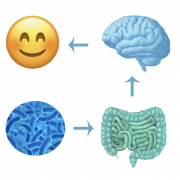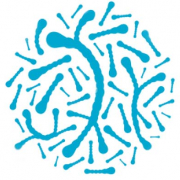 https://samahitaretreat.com/wp-content/uploads/2020/03/Prebiotic_02-scaled.jpg
1920
2560
Daniel Stringer
http://samahitaretreat.com/wp-content/uploads/2024/01/samahita-logo-v2.svg
Daniel Stringer2020-03-17 04:46:422022-11-29 04:54:52Solve Sleep Disorders with Prebiotics
https://samahitaretreat.com/wp-content/uploads/2020/03/Prebiotic_02-scaled.jpg
1920
2560
Daniel Stringer
http://samahitaretreat.com/wp-content/uploads/2024/01/samahita-logo-v2.svg
Daniel Stringer2020-03-17 04:46:422022-11-29 04:54:52Solve Sleep Disorders with PrebioticsSolve Sleep Disorders with Prebiotics
Improve your Sleep and Stress Resilience with Prebiotics
New research suggests that a diet rich in prebiotics improves stress resilience and related sleep disorders.
Prebiotics are non digestible fibers found in many foods including vegetables, wholegrains, dairy products and even breastmilk. It is the non digestibility that lends prebiotics their special qualities, namely, to feed resident gut bacteria thus increasing the health and diversity of our microbiome. It now appears that prebiotics may be beneficial for managing stress and sleeping better. Learn More about prebiotics
Sleep and stress.
Sleep and stress are closely related. Stressful events such as intense study or work has been shown (1) to decrease sleep quality and good quality sleep is likewise essential to recovery and management of stress. There are many ways to improve sleep quality and rebalancing our circadian rhythms such as light therapy, not eating too late and staying calm before bed. Finding a method to deal with both sleep and stress would present an ideal remedy for our modern lifestyles. Learn More Sleeping Tips
Stress reduces microbiome diversity
Stress reduces microbiome diversity which in turn impacts physical and psychological health. An unhealthy gut leads to a myriad of health problems not just for the digestive system but neurological diseases such as Alzheimer’s by way of the gut-brain-axis. Gut bacteria produce neuroactive compounds the effects of which are not yet fully understood. Read more about Probiotics
The new research.
This recent research (2) conducted at the University of Colorado brings new evidence to support these ideas. Tests were conducted on rats split into groups with one group fed regular food and the other fed a diet rich in prebiotics. Various physiological markers including sleeping patterns, and measurements of bioactive compounds from fecal samples were tested before and after stressing.
Results from the rats fed normal food showed increases in metabolites associated with sleep disruption (allopregnanolone precursor and Ketone Steroid) whereas the prebiotic fed rats showed no such increase. Also, the prebiotic fed rats spent more time in REM sleep (a critical stage in sleep for stress recovery) after stressing with the other group showing no such improvement. Taken together these results suggest a diet rich in prebiotics can improve stress resilience and aid better stress relieving sleep.
In the long run this kind of research is extremely helpful for developing non-pharmacological remedies for stress and sleep disorders and fits the general trend improving health through nutrition. As always, a diet rich in vegetables, wholegrains, fermented foods, yoghurts, water kefir and many more will improve gut health and, in turn, brain health thanks to the range of healthy probiotics and prebiotics Many of which we continue to serve on our buffet at Samahita.
(1) https://www.ncbi.nlm.nih.gov/pubmed/28756825
The prevalence and association of stress with sleep quality among medical students.
(2) https://www.nature.com/articles/s41598-020-60679-y
Dietary prebiotics alter novel microbial dependent fecal metabolites that improve sleep
More from the Samahita Blog



